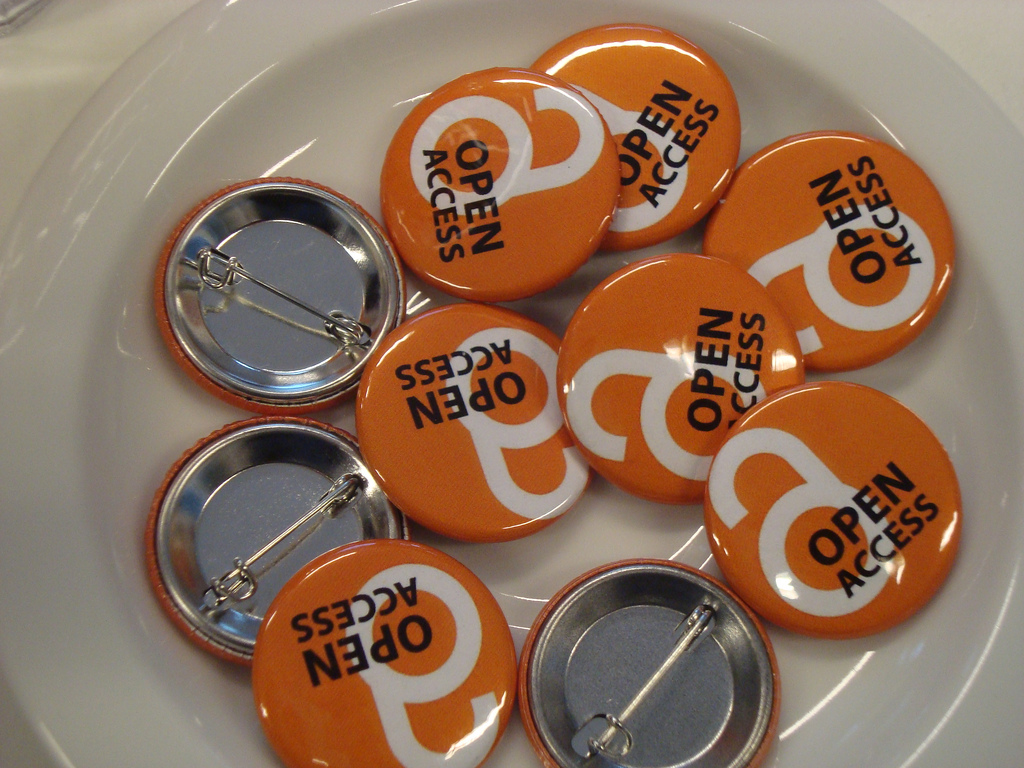Geocoder, the Ottawa-based company that managed to develop a database of postal codes using crowdsourcing techniques, has settled a controversial lawsuit brought by Canada Post. Canada Post sued in 2012 claiming intellectual property rights in postal codes. Geocoder did not copy the postal codes, however. Instead, it used crowdsourcing to develop a database containing over one million Canadian postal codes after asking people to submit their postal codes with their address. The database is freely available under a Creative Commons licence and is enormously valuable for organizations that need access to the data but are unable to pay the steep fees levied by Canada Post. While many open data advocates have long argued that this information should be available under government open data initiatives, Canada Post has steadfastly refused.

Open Access Promo Material by Biblioteekje (CC BY-NC-SA 2.0)
Open Access
Why the Government’s Commitment to “Open by Default” Must Be Bigger Than Open Data
This week, I was pleased to participate in a joint initiative between the University of Ottawa’s Public Law Group and iPolitics to examine the government’s Speech from the Throne from many policy perspectives. This includes contributions from Professors Mendes, Morales, Oliver, Pal, Dodek, Forcese, Chalifour, and Cairns Way. My piece (iPolitics version, homepage version) focuses on the government’s commitment to “open by default”, which appears in all ministerial mandate letters. I note that the emphasis on open and transparent government in the Speech from the Throne was both welcome and unsurprising. Prime Minister Justin Trudeau campaigned on openness and transparency with impressive commitments to transform how Canadians access government information.
C-51 Reform, TPP Top the List of “Real Change” Tech Policy Priorities
Digital policies may not have played a significant role in the just-concluded national election, but the arrival of a majority Liberal government will leave many expecting “real change” on the digital front in the years ahead. My weekly technology law column (Toronto Star version, homepage version) notes that Prime Minister-designate Justin Trudeau is likely to focus on key economic promises from his platform once Parliament resumes. However, there will be several digital issues that should command attention during his first 12 months in office.
Law, Privacy and Surveillance in Canada in the Post-Snowden Era
Edward Snowden burst into the public consciousness in June 2013 with a series of astonishing revelations about U.S. surveillance activities. Snowden’s primary focus has centered on the U.S., however the steady stream of documents have laid bare the notable role of allied surveillance agencies, including the Communications Security Establishment (CSE), Canada’s signals intelligence agency. The Canadian-related leaks – including disclosures regarding surveillance over millions of Internet downloads, airport wireless networks, spying on the Brazilian government, and the facilitation of spying at the G8 and G20 meetings hosted in Toronto in 2010 – have unsurprisingly inspired some domestic discussion and increased media coverage on privacy and surveillance issues. Yet despite increased public and media attention, the Snowden leaks have thus far failed to generate sustained political debate in Canada.
I am delighted to report that this week the University of Ottawa Press published Law, Privacy and Surveillance in Canada in the Post-Snowden Era, an effort by some of Canada’s leading privacy, security, and surveillance scholars to provide a Canadian-centric perspective on the issues. The book is available for purchase and is also available in its entirety as a free download under a Creative Commons licence. This book is part of the UOP’s collection on law, technology and media (I am pleased to serve as the collection editor) that also includes my earlier collection on the Copyright Pentalogy and a new book from my colleagues Jane Bailey and Valerie Steeves titled eGirls, eCitizens. All books in the collection are available as open access PDF downloads.
New Year Offers Chance to Hit Reset Button on Digital Policies
A new year is traditionally the time to refresh and renew personal goals. The same is true in the digital policy realm, where despite the conclusion of lawful access, anti-counterfeiting, and anti-spam rules in 2014, many other issues in Canada remain unresolved, unaddressed, or stalled in the middle of development.
With a new year – one that will feature a federal election in which all parties will be asked to articulate their vision of Canada’s digital future – there is a chance to hit the policy reset button on issues that have lagged or veered off course.
There is no shortage of possibilities, but my weekly technology law column (Toronto Star version, homepage version) notes the following four concerns should be top of mind for policy makers and politicians:











